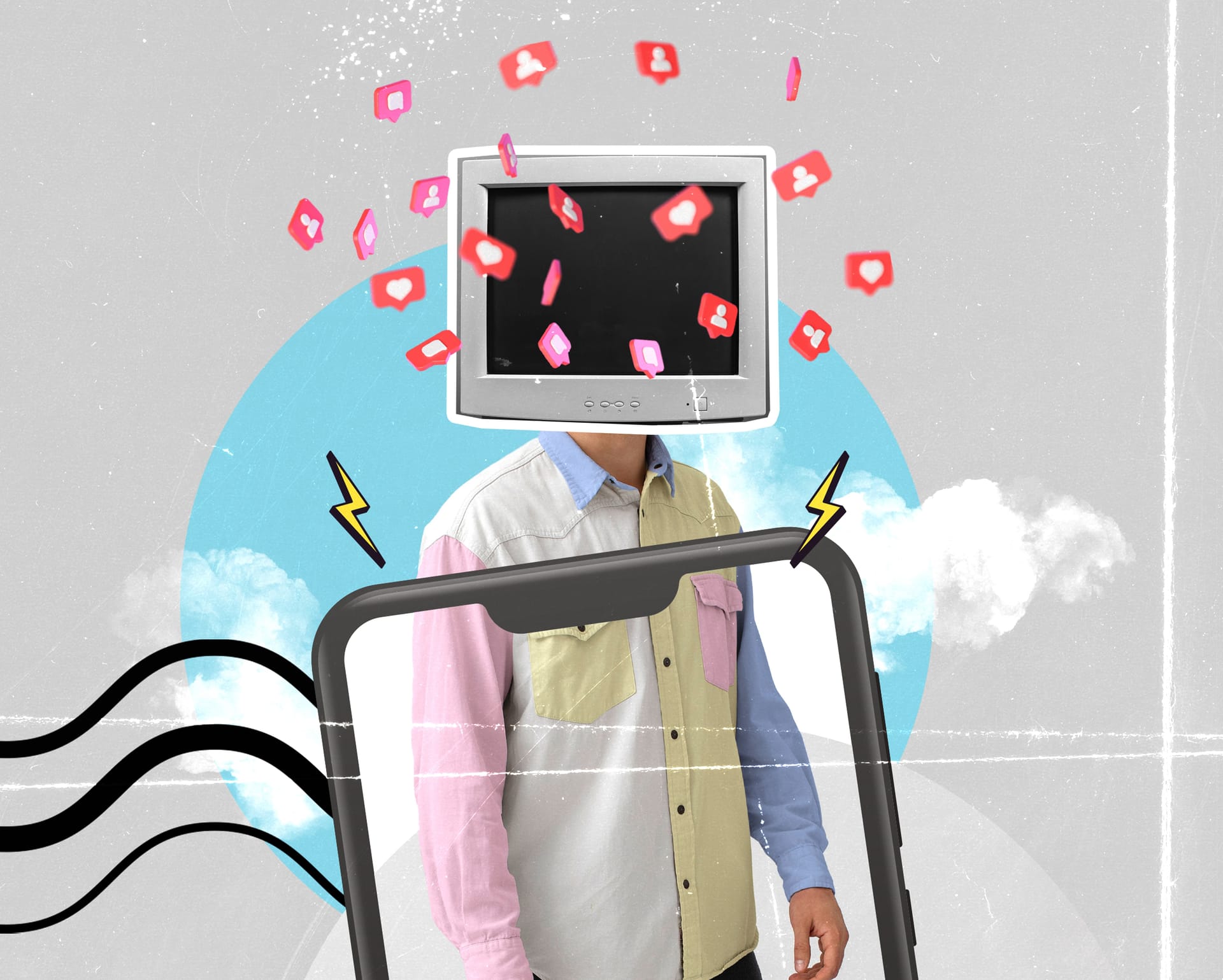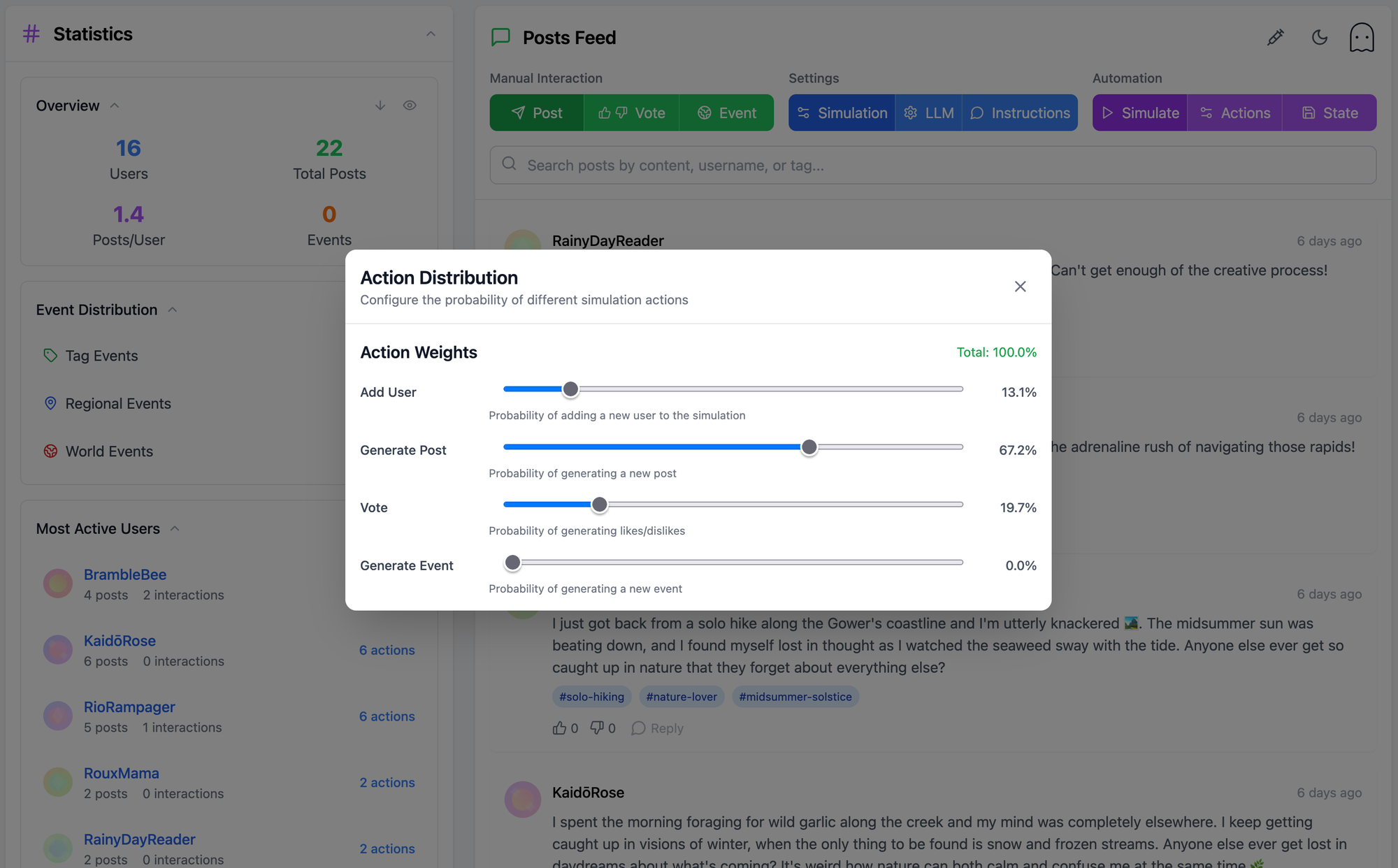The Internet Isn't Exciting Anymore

Over the past decade, the internet has been losing its sense of self, and in turn has been losing its grasp on my attention. Its that strange feeling you might get when your favorite coffee shop, store, or hangout permanently closes. You're left with those intangible memories, which you know will only last as long as your brain keeps all those details in check. And unfortunately, there's no way to snapshot everything to relive those cherished moments and locations in a Groundhog Day like memory.
This is that feeling I get when trying to explore social media (or really, the majority of the internet). I'm not the first person to talk on this subject, nor will I be the last. But it's gotten bad enough that I decided to finally start this site. This is my effort to sequester off my own personal portion of the internet to actually make something that will stay up as long as I have the capacity to do so.
So what was the final straw?
AI - or to be less hyperbolic, the soulless abuse of the wonderful tool that is AI, which results in today's modern attempts of engagement farming and entertainment slop. When we live in a society where every post, video, or story can result in quick money to those who lack scruples, ethics, or care, this is the outcome. And it's up to us - the settlers and visitors of the internet - to fix it if we can.
What Is "Slop"?
Slop is multifaceted, coming in all kinds of forms. It's definition is the modern day application of Justice Potter Stewart's "I know it when I see it[.]" [1] And unfortunately I can see it everywhere.
Over the last week alone, my eyes and ears have been subject to it more than I requested. From obvious AI voiced ads on podcasts to YouTube videos masquerading as helpful opinion pieces only to be clearly created entirely by AI; engagement farming posts on social media to unsolicited and off-topic replies to (probably) real posts. It's a mindset that is clearly inspired by the thought process of ethics be damned where easy money is possible. And it makes me sick.
Slop Destroying the Digital Human Connection
One of the biggest frustrations with digital slop is not that it exists, but rather where and how it exists. There is a place and time for it, if one is willing to opt-in to the experience. The problem is bad actors infiltrate and flood our lives with the barrage of slop without us agreeing to it. It's a tsunami of low quality cash grabs in spaces we once had semi-regular discourse, creative sharing, and basic updates from those in our lives we cared about.
Let's look back to the 2000s and early 2010s: social media existed to share thoughts and ideas, connect with family without barriers of physical distance, and otherwise help supplement our non-digital lives. Just like with everything else, it could certainly be damaging if overused, but when used correctly it could actually add something helpful, meaningful, or otherwise positive. Bots and attention-whoring existed, but it was arguably a minority and could usually be ignored. In a sense, it was the early domestication of the wild west that was the internet: still wild, but with a bit of civilization to help.
Now social media is ruled by influencers and AI slop, and in many cases they are one in the same. Scrolling through an average feed can easily be: click bait, post by someone you actually follow, click bait, advertisement, meme, news article, meme, click bait, etc. It is the fight for your attention to drive up the poster's engagement, and in turn, drive up their revenue. And instead of getting people involved to respond and share their own thoughts, or take the onus of posting something original, it is turning feeds into the modern day TV of media consumption that asks for as little thought as possible.
Dead Internet Theory
As much as I hesitate to use Wikipedia for many things, the summary of the idea of Dead Internet Theory is well worded:
The dead Internet theory is a conspiracy theory that asserts, due to a coordinated and intentional effort, the Internet now consists mainly of bot activity and automatically generated content manipulated by algorithmic curation to control the population and minimize organic human activity. Proponents of the theory believe these social bots were created intentionally to help manipulate algorithms and boost search results in order to manipulate consumers. Some proponents of the theory accuse government agencies of using bots to manipulate public perception. [2]
Now whether the bot activity and automatically generated content is coordinated and intentional or a byproduct of other behaviors is probably a worthy discussion requiring more statistics and hard data than I am able to provide. However, the concept that the internet is fake (or "dead") doesn't feel far off, especially if you compare it to how things felt a decade or more ago.
My reason for bringing up the Dead Internet Theory is two fold: (1) a way to explain one of potentially several reasons to explain the slop occurrence, and (2) a transition to a recent project I created.
Dead Internet

About a month back, I published a small hobby project I titled Dead Internet. It started from a random idea: if AI could talk with itself, what would happen and what would I witness? And it quickly unraveled into a social media simulator. Funnily enough, because it's made to only simulate social media users and various events, it feels more like old social media than the slop filled form we have today. And because of that, even though I know it's fake, it can often feel more genuine, unique, and more interesting.
These feelings are in part what helped me arrive at my stance that it's not the technology itself that ruins the experiences, but the abuse of it.
AI is a Tool
Like all tools, AI can also be abused. And it is all the time. However, I see many complaints blaming the use of AI being lumped in with the abuse of it.
AI Art
One of the most prominent anti-AI scenes right now is digital art. Artists complain that AI models improperly gather aspects from digital art to regurgitate similar bastardized versions of their art, product of the artist's efforts. There is certainly a discussion to be had around this, but from my viewpoint, the cat is already out of the bag. It's not something that slow-to-enact laws or regulations are able to handle effectively, and it relies on more of an ethical argument at this point.
In the world of art, I think it's less the misuse of the AI tool itself, and more of the ethics behind how the tool is used: to create a new style, use a style as inspiration, or copying an exact style. While I'm not personally an artist (I can draw stick figures and RPG maps), my wife is - so it's an area I at least observe to some greater level of detail. It's my current belief (neutral sideline) that most digital art will become dominated by AI because of it's ease of access and low costs while providing an (eventual) higher quality product than what most humans are capable of. Traditional art (physical mediums) will continue to demand a premium due to its physicality and individual approach that digital mediums don't (or can't) share. Digital Art will always have optional bespoke approaches for more unique art forms AI can't grasp, or for artists who play the arguments of ethics and superiority.
It's About Intention
To me, the real discussion about AI is the intention behind its use. When output is created by AI without purpose, or for the sole purpose to shock or lure (click bait), it lacks soul. In contrast, deliberate curation guided by thoughtful intent, elevates the AI’s role from a mindless generator to a tool that can supplement and enhance human creativity and process. It may not have the same level of detail or oomph as masters in the space, but it helps narrow the divide between those without the necessary prerequisites and those who have mastered the skills. It is a literal shift towards leveling the playing field - for better or for worse.
Fighting Back
So if we want to fight back, what can we do about it? Just like your elementary school teacher may have said: walk away. Don't engage with the slop. Hide the slop posters from your feed if possible, and stop clicking on stuff that is obvious slop (unless you actually want to see it - engage with it only on your terms). If all you see is slop, reevaluate who you follow and what you're subscribed to. And if nothing seems to fix it, leave the service. It doesn't have to be permanent, but show the statistics that whatever they are offering isn't keeping you engaged and willing to come back. The biggest reason why all these bad actors exist is because engagement goes up, meaning the service has higher stats and the creator gets paid more.
Reforesting the Internet
Outside of ignoring the bad actors, you can also be proactive to grow the organic internet. Create posts and reply on services you use and enjoy; start your own website and contribute to it every so often; begin a project and commit to milestones. Don't be afraid to fail - it's part of everyone's growing process, and more importantly: it makes it genuine. Failure is not a demerit on your record if you can say you gave it a legitimate effort.
The beauty and sadness of life is that not everything is meant to exist forever. Empires will rise and fall, people will be born and die, and love will bloom and wilt. It's what you make of it now that defines how impactful and meaningful it is for you moving forward.
[1] "I shall not today attempt further to define the kinds of material I understand to be embraced within that shorthand description ["hard-core pornography"], and perhaps I could never succeed in intelligibly doing so. But I know it when I see it, and the motion picture involved in this case is not that." Jacobellis v. Ohio, 378 U.S. 184 (1964).


Member discussion